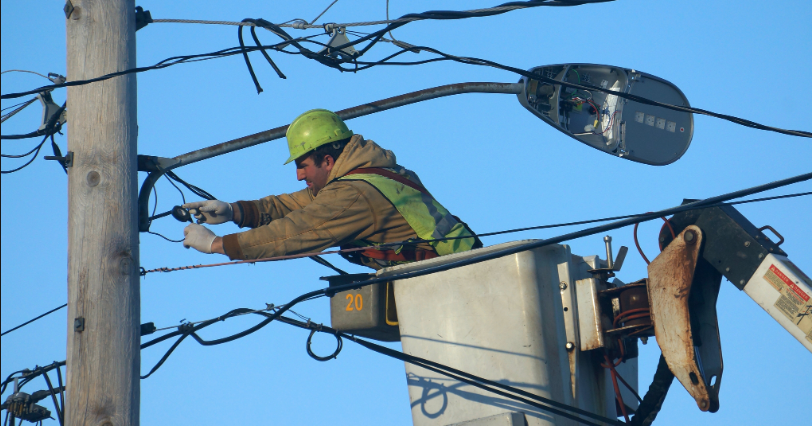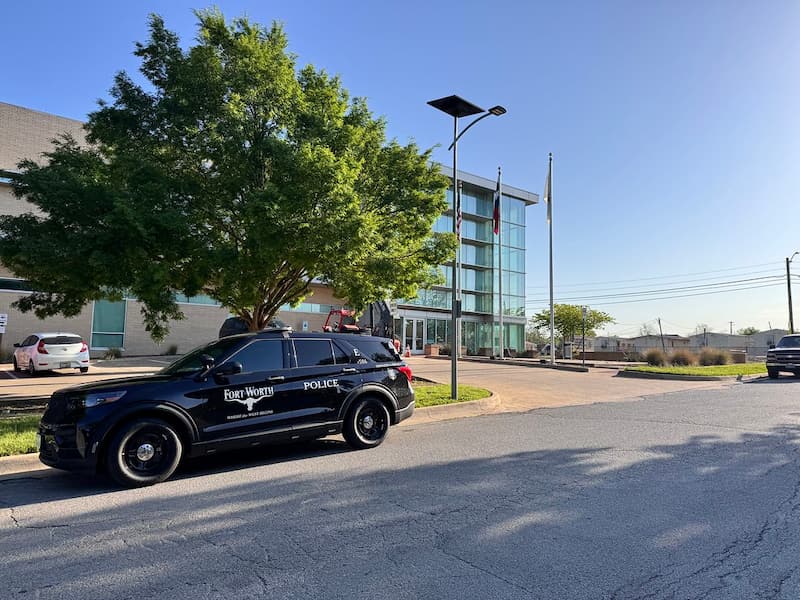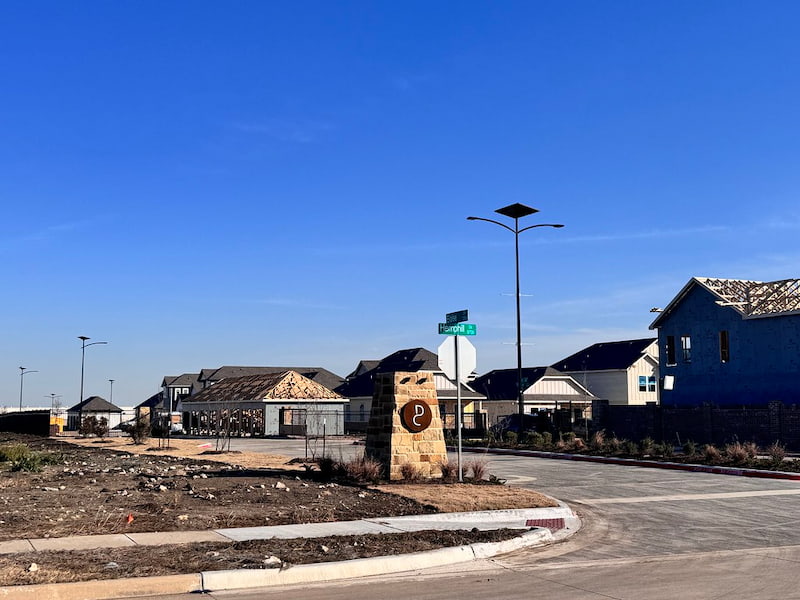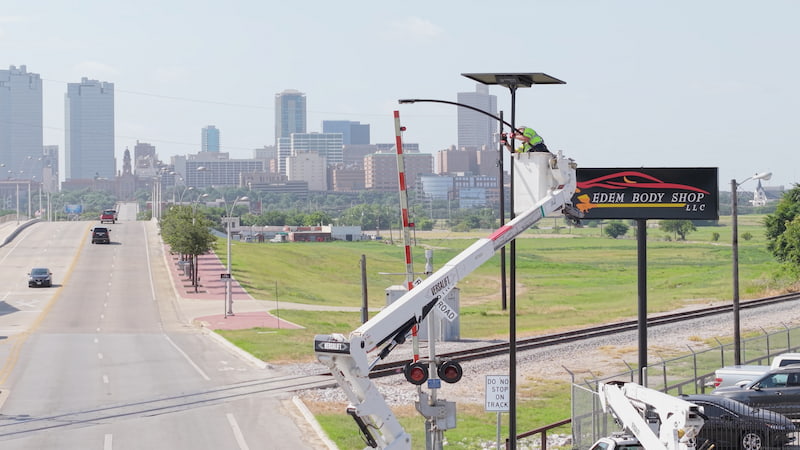Understand the True Maintenance Costs of Street Lighting — and Why Solar Changes the Equation
When city planners, engineers, and public works departments evaluate streetlight infrastructure, the focus often starts with upfront price tags: fixtures, poles, installation, and grid connection. But savvy municipalities know that initial costs tell only part of the story.
Maintenance — often overlooked — plays a defining role in the long-term affordability and performance of city lighting systems. Even LED upgrades don’t eliminate the persistent, often unpredictable maintenance burdens of grid-tied streetlights. From labor-intensive diagnostics to utility coordination delays, these systems quietly consume operating budgets year after year.
That’s why more cities are turning to off-grid solar street lighting. With fewer failure points, minimal upkeep, and remote monitoring capabilities, solar streetlights are reshaping what municipalities expect from their lighting infrastructure.
Table of Contents
What Does It Take to Maintain a City Streetlight?
Understanding the Full Scope of Maintenance Demands
Maintaining city streetlights is more complex than replacing a bulb or checking a fuse. It’s a full operational category that demands skilled labor, specialized equipment, and ongoing coordination. Here’s what it typically involves:
- Lamp and Driver Replacement: Older systems like HPS or MH require regular bulb swaps. While even modern LEDs can experience driver failures, Fonroche Lighting America supplies only the highest quality, robust LEDs and drivers on our fixtures, engineered to deliver exceptional performance and a lifespan of 20-25 years, significantly extending replacement cycles.
- Pole and Foundation Inspections: Poles must be checked for corrosion, cracks, or impact damage — especially in areas with harsh winters or high traffic.
- Cabling Issues: Grid-connected systems rely on underground wiring, which can corrode, degrade, or be damaged by roots, water, or construction.
- Photocell or Control Unit Malfunctions: These trigger automatic on/off functions and are vulnerable to weather damage.
- Electrical Failures: Fuses, circuit breakers, and control cabinets can go offline due to surges, short circuits, or grid disturbances.
- Vandalism and Accidents: Street poles and control boxes are frequent targets of collisions and tampering.

Each issue demands more than just parts — it involves bucket trucks, crews, traffic control, and scheduling. Over time, these demands stack up into thousands of dollars per fixture in labor, materials, and indirect costs.
Real-World Cost Breakdown: Grid-Tied Streetlight Maintenance
Why Grid Systems Quietly Drain Municipal Budgets
Grid-tied streetlights are deceptively expensive to maintain. The infrastructure they depend on — cables, utility interconnects, and central control units — is aging, fragile, and labor-intensive to service. The average annual cost to maintain a grid-tied fixture? Between $250–$400, not including energy costs.
Here’s what drives those costs:
- Trenching Repairs: Faulty wiring often means excavating roadways, redirecting traffic, and absorbing heavy labor fees.
- Utility Coordination: Even minor repairs may require utility approval or third-party contractors, adding administrative time and cost.
- Diagnostic Time: Identifying issues in interconnected systems can take hours, especially when multiple fixtures go dark at once.
- Metering and Billing Errors: Cities often rely on estimated billing for streetlight energy and maintenance — making it hard to budget accurately or verify costs.
These factors turn even small-scale outages into multi-day projects, sapping resources and extending timelines.
Why Solar Streetlights Require Less — and Cost Less — to Maintain
Fewer Failure Points, Simpler Maintenance, Longer Life
Off-grid solar streetlights eliminate the most complex and costly aspects of maintenance by design. Each unit is self-contained — powered by the sun, storing energy with high-efficiency batteries, and operating independently of utility infrastructure.
With no trenching, cabling, or grid interconnects, the risk of major outages is nearly zero.
Key Maintenance Advantages of Solar Streetlights:
- No Grid = No Grid Failures: No blackouts. No surges. No waiting on utilities.
- Minimal Moving Parts: No buried wires, no exposed control cabinets.
- 10+ Years of Maintenance-Free Operation: Sealed batteries and LED luminaires last a decade or more without service.
- Remote Monitoring: Fonroche Connect™ alerts city crews only when intervention is truly needed — eliminating guesswork and truck rolls.
- Standardized Parts Across the Network: With modular, upgradeable designs, cities streamline maintenance inventories and procedures.
Maintenance doesn’t disappear — but it becomes rare, predictable, and far less expensive.

Common Streetlight Maintenance Triggers — and How Solar Avoids Them
| Issue | Grid-Tied Systems | Solar Systems (Fonroche) |
| Cable failure | Trenching, electrical diagnostics, costly repairs | No underground cabling |
| Grid outages | Entire zones go dark, crews dispatched | Fully operational — grid-independent |
| Photocell malfunction | Lights stuck on/off, safety risk | Integrated smart controls with remote override |
| Pole base corrosion | Frequent in wet/snow climates | Same pole concerns, but easier replacement |
| Central control failures | Widespread outages, complex diagnostics | Each light is independent — failure is localized |
| Vandalism | Utility cabinets are vulnerable | No centralized infrastructure to damage |
Frequently Asked Questions
How much does it cost to maintain a single city streetlight each year?
Typical annual maintenance for grid-tied streetlights ranges from $250 to $400 per fixture. This includes parts, labor, and indirect costs like traffic control and diagnostic time.
Do solar streetlights eliminate maintenance costs?
Solar streetlights, while not entirely maintenance-free, drastically and predictably reduce costs compared to grid-tied systems. Grid-tied lights often rely on resident reports for outages and are vulnerable to expensive copper wire theft. Fonroche’s solar streetlights, however, have no underground wiring to steal, use smart monitoring for proactive issue detection, and boast long-lasting components (10+batteries, 20+LEDs, 30+solar panels), leading to significantly fewer repairs, lower labor, and predictable long-term expenses.
What is the most expensive part of maintaining grid-connected streetlights?
Trenching and underground cable repairs are among the most labor-intensive and costly aspects. Diagnosing faults and restoring service can cost thousands per incident.
Can solar streetlights be monitored remotely?
Yes. Fonroche Connect™ provides real-time system health updates, alerts, and performance analytics, enabling cities to reduce truck rolls and act only when needed.
How do cities benefit financially from switching to solar?
Savings come from eliminating energy bills, utility coordination, and most recurring maintenance costs. Combined, these offer a faster payback and stronger ROI.

Conclusion: Cut Costs, Not Corners
Why Maintenance Should Be a Deciding Factor in Lighting Design
Streetlight maintenance is a silent budget killer. While it doesn’t always make headlines, it makes a major impact over time. Grid-connected systems carry a long tail of complexity, vulnerability, and cost — even with LED fixtures.
Fonroche’s off-grid solar streetlights offer a proven alternative: no trenching, no power bills, and virtually no maintenance for a decade or more. With smart diagnostics, rugged design, and energy independence, cities are unlocking a better way to keep communities safe, well-lit, and fiscally sustainable.
Ready to Eliminate Maintenance Headaches?
Explore Fonroche’s full range of solar street and roadway lighting solutions. Let us show you how to lower costs, extend asset life, and upgrade your infrastructure for good.

